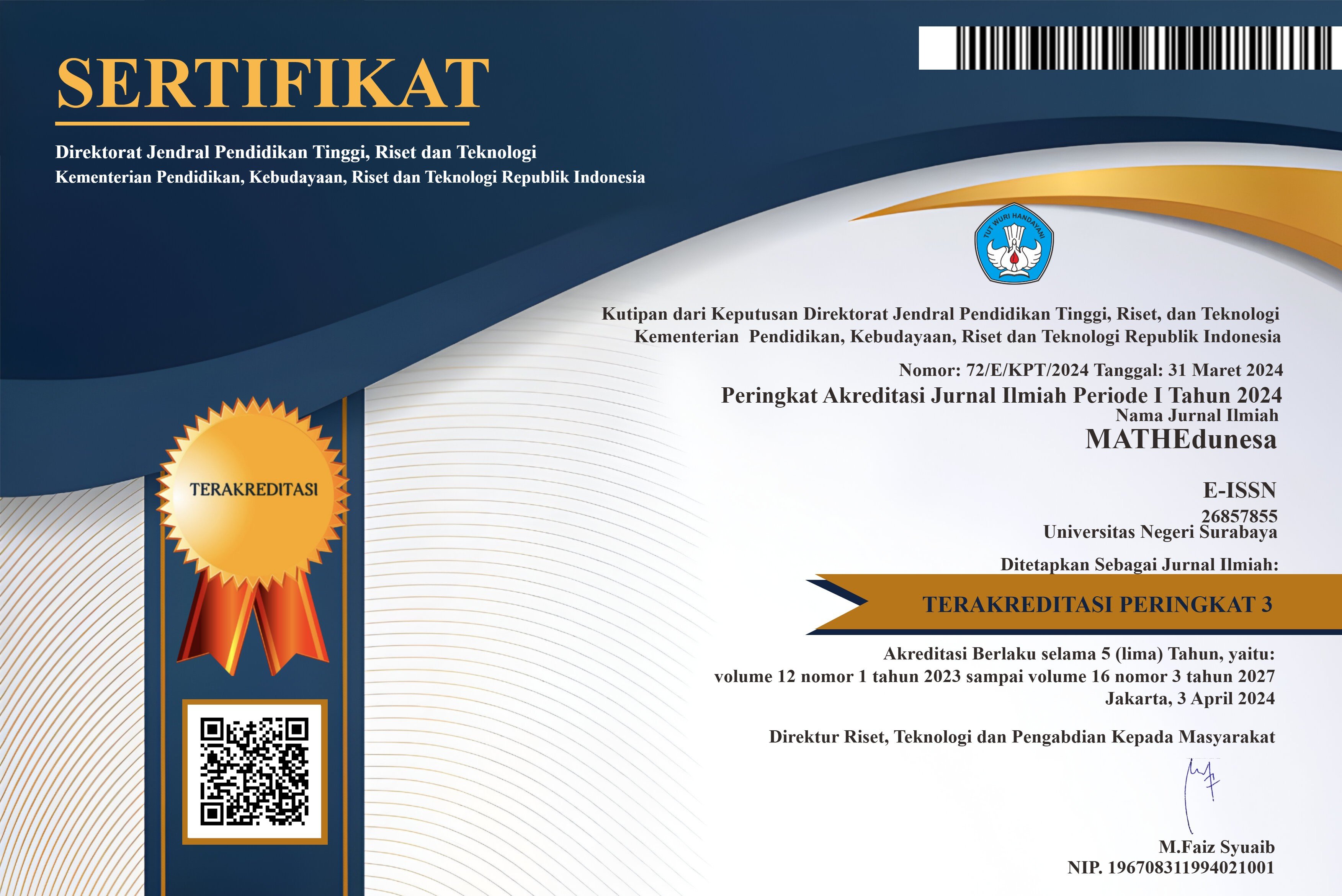Eksplorasi Etnomatematika Baju Adat Kudus Gaya Saudagar Ditinjau dari Aspek Literasi Matematis
DOI:
https://doi.org/10.26740/mathedunesa.v14n2.p673-686Abstract
Mathematics learning, which is still dominated by an abstract approach, causes low interest and understanding of mathematical concepts among students. Therefore, the ethnomathematics approach is considered capable of bridging between local culture and mathematics education in a more contextual and meaningful way. This study aims to explore the forms of ethnomathematics contained in Saudagar-style Kudus traditional clothes and review them based on aspects of mathematical literacy, namely content, context, and process. This research used a qualitative method with an ethnographic approach. Data were collected through direct observation, semi-structured interviews with cultural figures, and visual documentation of the elements of Kudus traditional clothing. The results showed that Kudus traditional clothes contain various mathematical concepts such as flat and spatial shapes (rectangles, circles, cones, tubes), the concept of tangent lines, and arithmetic rows and series. The findings also represent aspects of mathematical literacy as a whole: content (space and shape, quantity, change and relationship), context (personal, occupational, societal, scientific), and process (formulate, employ, interpret, evaluate). Thus, Saudagar-style Kudus traditional clothes have great potential to be used as a contextual learning resource to improve students' mathematical literacy skills.
Downloads
Downloads
Published
Issue
Section
 Abstract views: 68
,
Abstract views: 68
, PDF Downloads: 78
PDF Downloads: 78




